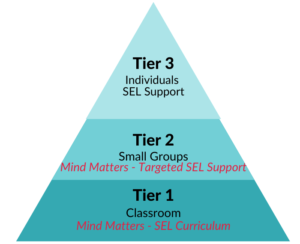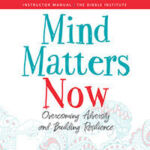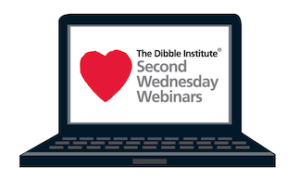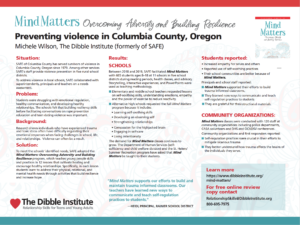Use Mind Matters to address trauma with mental health supports and SEL
The good news is that mental illness and trauma are treatable! Not only can Mind Matters expand your mental health supports and services in school, but it wil also grow students’ understanding and growth in social and emotional learning (SEL). See how the program can be used as a Tier 1 and Tier 2 SEL support in classrooms, small groups, and one-on-one settings for Multi-Tiered Systems of Support (MTSS).
Mind Matters’ lessons teach people aged 12 and up to heal from Adverse Childhood Experiences (ACEs) and other negative experiences with innovative methods based on current research and neuroscience. These skills give individuals a way to take charge of their emotions and improve their states of mind. Participants learn to address their physical, relational, and mental health needs.
Resources
Support for Mind Matters
The Impact
According to the Center for Disease Control, half of all chronic mental illness begins by age 14 and three-quarters begin by age 24. It is a tremendous concern for young people. Listen as California’s Surgeon General – Dr. Nadine Burke Harris – explains the effects of childhood trauma.
Mental health involves the well-being of our emotional psychological, and social selves. Many factors may contribute to mental illness, including a history of trauma, Adverse Childhood Experiences (ACEs), Biological factors, feelings of loneliness of isolation and more. The effects of traumatic experiences and toxic stress can often last a lifetime.
The past year has been one of increased stress and anxiety for youth and adults together. It’s time to take steps to support mental health.
Acesaware.org is offering free screening tools for children and adults to access their Adverse Childhood Experiences score (ACEs).
Audio Message from Author Carolyn Rich Curtis, PhD









